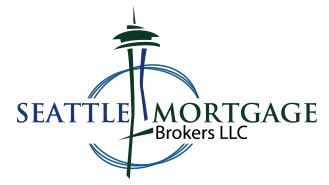We're In A Buyers Market Lower mortgage rates haven’t caused an uptick in demand just…
Mortgage Brokers Over Banks: What You Should Know
The Mortgage Broker: Cursed After The Great Recession
During and immediately after the (most recent) Great Recession, independent mortgage brokers found themselves pretty much all but squeezed out of the mortgage industry. In 2006, according to the Association of Independent Mortgage Experts (AIME), mortgage brokers originated and average of 56% of home loans. Yet over the next several years, 75% of them went out of business. Today, the mortgage broker market share stands at about 16%.
What Happened To Mortgage Brokers, And Why Should You Care?
The near-death of the mortgage brokerage industry occurred for various reasons:
- Some of the bigger banks quit lending through brokers (you know, because they collapsed and restructured), claiming that loans that were in-house originated were less likely to end up in foreclosure.
- Banks with customers acquired by brokers marketed directly to them for refinancing, cutting out the broker for future transactions.
- New mortgage reforms made it much harder and more expensive for brokers to compete with direct lenders.
Mortgage brokers must complete mandatory education and pay steep licensing fees for each loan officer employed. Bank employees only require a background check and registration costing just $75 per loan officer.
This effectively cut competition for direct lenders (mostly banks), and contributed to massive profits in the industry.
Banks make unusually large gains on mortgages because they are taking profits far higher than the historical norm. That 3.55% rate for a 30-year mortgage could be closer to 3% if banks were satisfied with the profit margins of just a few years ago.
Less competition made this possible. And that’s why you should be happy that mortgage brokers are relevant again.
Brokers Are Back!
The AIME has set a goal of raising the broker market share from 16% to 25% by 2020. They plan to do this in part by increasing the speed of mortgage underwriting from days or hours to minutes through technology and by hiring many more underwriters.
Mortgage borrowers, even those who ultimately finance with a direct lender, should welcome this development. Competition for business helps keep mortgage lender prices down and saves borrowers money. It also forces the largest lenders to compete with better underwriting turn times, increased underwriter flexibility and more innovative products.
Mortgage Broker Or Banker? What’s Right For You?
There are two big differences between bankers and mortgage brokers. Here’s how the bank makes their money:
- Bankers employ loan officers. These company employees sell only their company’s products, and their job is to match you with a program (usually limited to programs their bank offers), get your information and documents, and help you through the underwriting and closing process (which could take 60 days because honestly, they’re in no real rush).
- Mortgage banks gets paid either by servicing your loan themselves, collecting your principal and interest each month, or by selling the loan and / or servicing rights to another institution, earning what’s called a “service release premium”.
And here’s how mortgage brokers earn theirs:
- Mortgage brokers function as the sales department for direct lenders. Brokers sell products from many wholesale lenders, working to find the lowest-cost loan for which the borrower qualifies.
- Mortgage brokers get paid by the borrower, in the form of an origination fee, or the wholesale bank, in the form of a yield spread premium (YSP).
You’ll see the YSP on a loan Closing Disclosure, but direct lenders are not required to show the SRP they earn.
Finally, some of the largest banks sell both through brokers and their own retail loan officers. And the deals are not identical. A broker can choose to reduce their commission to offer a better deal than the direct lender, or it may choose to charge a higher price. Direct lenders can also offer different pricing to wholesale and retail channels.
Only The Bottom Line Matters
Brokers and bankers have their pros and cons. A mortgage broker has access to a larger number of programs than an employee of a direct lender. However, direct lenders that close thousands of loans may operate on smaller profit margins, allowing them to price lower.
Mortgage brokers, because they are middlemen, may have less control over the processing of your mortgage than a direct lender would. That can cause delays in closing. But brokers can also increase your chance of loan approval, because they have the option of sending your information to specialists — for self-employed borrowers, for instance, or applicants with lower credit scores.
If you want to talk to a broker who SURVIVED the Great Recession, talk to Steve Gilbert at Seattle Mortgage Brokers. You can trust him to give you the advise you need to make your home owner goals a success.
*This article does not represent legal interpretation or advice. This is not a commitment to make a loan. Loans are subject to borrower qualifications, including income, property evaluation, sufficient equity in the home to meet LTV requirements, and final credit approval. Approvals are subject to underwriting guidelines, interest rates, and program guidelines, and are subject to change without notice based on applicant’s eligibility and market conditions. Refinancing an existing loan may result in total finance charges being higher over life of loan. Reduction in payments may reflect longer loan term. Terms of the loan may be subject to payment of points and fees by the applicant. Seattle Mortgage Brokers, LLC NMLS: LO# 305371/1598279 | MB# 761615

